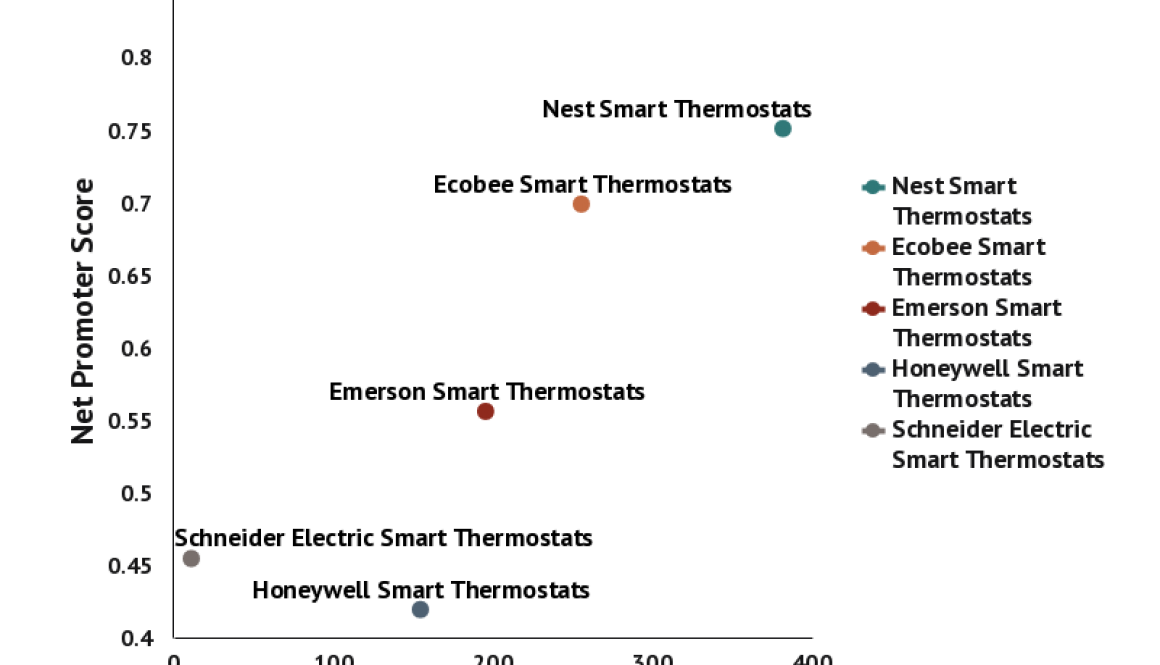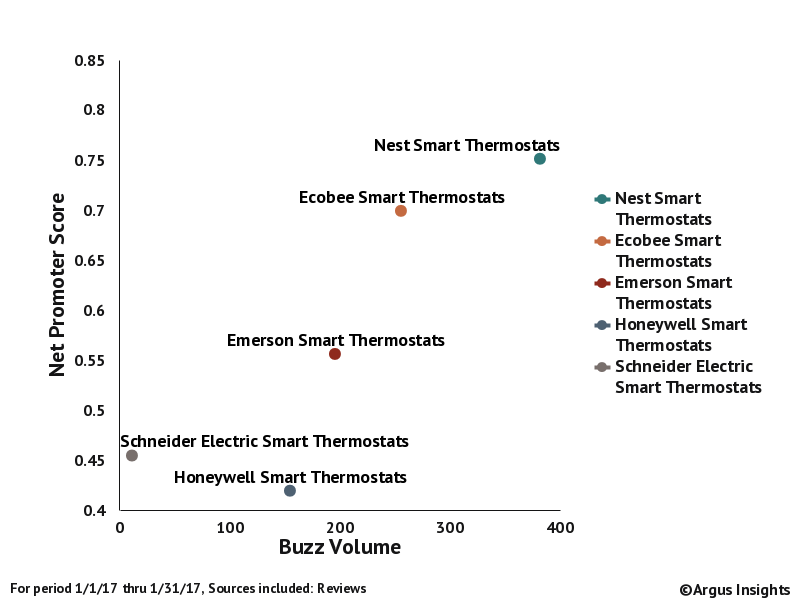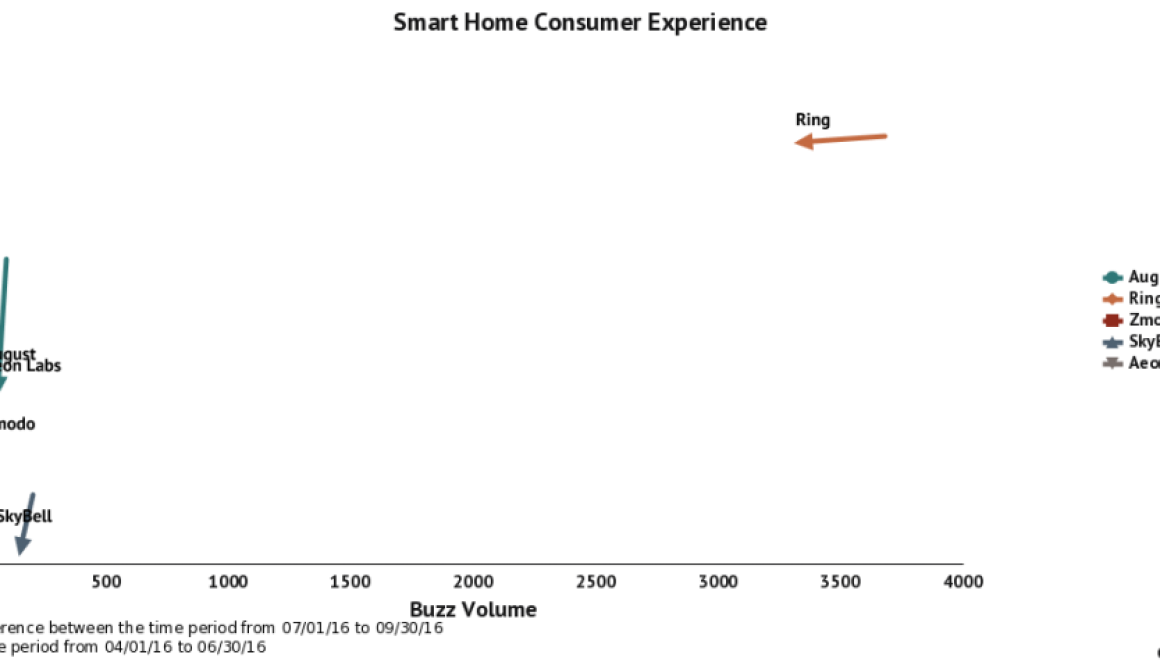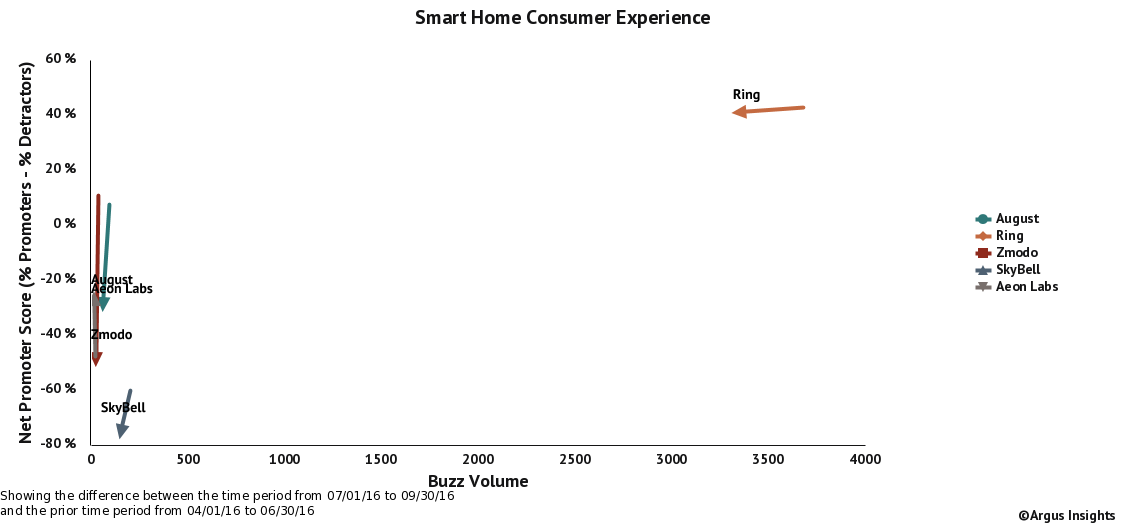What do consumers really ask Alexa and Google Home? Is it all Smart Home?
Whenever I speak about the transformative nature of voice interfaces for society’s favorite multi-user environment, the home, the question that comes up most of the time is how are consumers using products like Alexa or Google Home? Well, as it stands, we have that data… We’ve pulled the consumer reviews on both Amazon Echo and Google Home (the flagship products for both Amazon and Google) to see what usage scenarios consumers speak the most about. Different from survey analysis, where you present consumers a list of uses and they mark the ones they have every considered, analysis of the review comments pull out what is top of mind for consumers. When authoring reviews, consumers mention what is most important to them, not what is most important to the survey designer. This results in a prioritized list of what consumers consider to be most critical to their user experience. And guess what? It’s not Smart Home, per se.
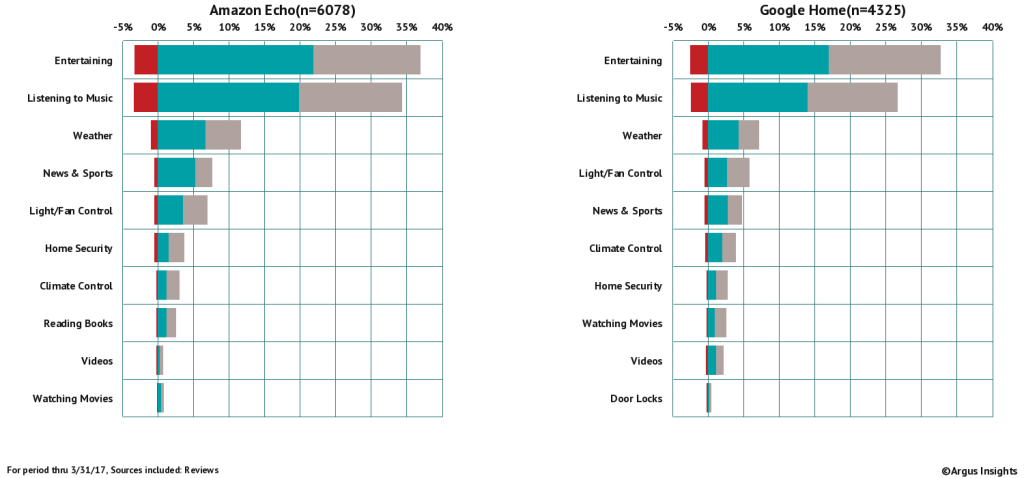
The chart above shows how often a use case is mentioned and the perception (negative, positive and neutral) of consumers discussing this use case. The X-Axis shows the percentage of all the reviews from 1 Nov 2016 to 31 Mar 2017 that mention a particular topic. You can see at the top of both products that Entertainment is mentioned by over 40% of all voice assistant users. After Listening to Music, the breadth of usage drops significantly with Weather in 3rd place for both. This is where the consumers diverge a bit. Alexa users mentioned catching up on News and Sports more than Google Home users. In fact, Google Home users prioritize Light/Fan Control (the first Smart Home use mentioned) above News and Sports. Light/Fan Control is actually the most mentioned Smart Home use for both ecosystems, a shift from the dominance of Thermostats/Climate control we saw in 2015. Google Home, with it’s Nest integration sees more use of Climate Control than Echo but both have Home Security above topics like controlling movie watching or Reading Books (Alexa allows you to listen to your Audible purchases through Echo and Dot, something about 3% of users are delighted by.
Great, but what does this mean for the theory that Voice Assistants are the killer gateway drug for Smart Home Adoption?
It helps but it is not yet the killer ‘app.’ When less than 10% even mention a Smart Home use for their voice assistant, we have a long way to go before there is a one to one relationship between Voice Assistant adoption and Smart Home bliss. It is important to note that these Voice Assistants are being used to curate audio environments first with lighting, climate and security falling below music, news and sports. Still, as consumers start to ask more of these assistants, it is logical to assume that any new Smart Home experience must tie into these ecosystems, within reason. You don’t want a would be thief yelling through your door, “Alexa, ask ADT to turn off the security system and unlock the doors.”
If you’d like to have more information like this at your fingertips, check out our Message Fit and Product Fit tools here. We’ve made our most basic Smart Home tools available for free so you can see what is driving the overall narrative and experience what life is like with a bit of Argus Insights sprinkled throughout your workflows.
In a future post, we’ll spend time looking at Siri and Apple Home’s position in this ecosystem as well as the recently announced Bixby from Samsung.
With that, “Alexa, Post Blog..”


